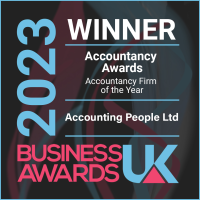Directors of limited companies in the UK can take advantage of the trivial benefits of modest, non-cash gifts that do not exceed £50 in value, are not linked to work performance, and are not included in employment contracts. For directors of close companies, the total value of trivial benefits is capped at £300 per tax year. These small gestures are a tax-efficient way to boost morale without creating additional reporting obligations.
What Are Trivial Benefits?
Trivial benefits are modest, occasional gifts or perks given to employees, including directors, for non-work-related reasons. Think of them as tokens of appreciation, such as a bouquet of flowers or a box of chocolates offered on special occasions like birthdays or to say thank you.
Because they are considered low in value and not connected to an individual’s performance or employment contract, HMRC does not require them to be reported or taxed.
What Qualifies as a Trivial Benefit?
To be classed as a trivial benefit, a gift or perk must meet all of the following conditions:
- The total cost of providing it is £50 or less (including VAT)
- It must not be given in the form of cash or cash vouchers
- It cannot be given as a reward for performance or work
- It must not be included in the recipient’s contract of employment
Examples of qualifying trivial benefits include:
- Tea, coffee, or a water cooler in the office
- Chocolates, wine, or small gifts for birthdays or celebrations
- Seasonal presents, such as Christmas hampers
- Minor health services such as flu vaccinations
- Repairs for employer-provided cycles, where the cost is generally under £20
For more detailed guidance, it’s always advisable to refer to the HMRC website.
What Does Not Qualify as a Trivial Benefit?
Any benefit or gift that fails to meet all four of the conditions above cannot be treated as a trivial benefit. Common examples of non-qualifying items include:
- Lunches provided during work hours
- Performance-related bonuses
- Gifts given in recognition of work achievements
- Travel or hotel stays provided for staff working late
- Benefits offered as part of a salary sacrifice arrangement (unless the agreement began before 6 April 2017, in which case different rules may apply)
These types of benefits usually need to be reported to HMRC using a P11D form and are subject to tax and National Insurance.
Examples: What Is and Isn’t a Trivial Benefit
Let’s go through a few everyday examples to clarify how the rules work in practice:
| Scenario | Amount | Qualifies as Trivial Benefit? |
|---|---|---|
| Bouquet of flowers for birthday | £35 | Yes |
| Birthday meal with colleague | £55 | No |
| Christmas hamper | £45 | Yes |
The key rules to remember are:
- The cost must not exceed £50 per person
- It cannot be in cash
- It must not be linked to work performance or contractual obligations
If you’re ever unsure, it’s wise to consult a qualified tax adviser.
Are Directors Entitled to Trivial Benefits?
In general, directors of limited companies can receive trivial benefits. This is because most directors are considered employees of their companies.
However, for close companies (typically companies with five or fewer shareholders), the total amount of trivial benefits that a director can receive is limited to £300 per tax year. The £50 per benefit limit still applies individually.
This £300 cap does not include attendance at annual events, such as a company Christmas party.
Some companies may have more than five shareholders but still fall under the rules for close companies if all shareholders are also directors. In such cases, the £300 cap remains in place for each director.
Why Offer Trivial Benefits?
You might wonder whether offering such small gestures is worth the effort. In fact, there are several good reasons for doing so:
- Tax efficiency: No Income Tax or National Insurance is due, and you don’t need to report the gifts to HMRC.
- Decent allowance: £50 per gift (up to £300 for directors in close companies) provides flexibility to celebrate and reward staff throughout the year.
- Flexibility: Because they’re not linked to employment contracts, you can offer these benefits whenever appropriate.
- Morale boost: Small tokens of appreciation can go a long way in creating a positive workplace culture.
Trivial Benefits vs. Benefits-in-Kind
Trivial benefits should not be confused with benefits-in-kind (BIKs). BIKs are more significant perks provided to employees as part of their employment, such as:
- Private health insurance
- Company cars
- Gym memberships
These must be reported to HMRC and are usually subject to tax and National Insurance contributions.
On the other hand, trivial benefits are occasional, non-cash gifts of low value that don’t relate to work performance or employment terms.
That said, some higher-value BIKs can be exempt from tax, including:
- Employer contributions to private pension schemes
- Up to £500 for medical treatment to support an employee’s return to work after long-term sick leave
- Home office equipment provided by the employer
If a benefit meets the four key conditions mentioned earlier, it can typically be classed as a trivial benefit. When in doubt, seek professional advice to ensure compliance.
Make the Most of Trivial Benefits
Trivial benefits are a great way for limited companies to reward their team without incurring tax or reporting responsibilities. If you are a company director, you can both give and receive these gifts – as long as they meet the necessary criteria.
Do you have questions about the types of benefits your company can offer? It’s always best to speak with a qualified tax adviser for personalised advice.
Need expert advice on trivial benefits or other tax-efficient strategies for your limited company?
Speak to our experienced team of chartered accountants today. We’re here to help you stay compliant, save tax, and make the most of your business benefits.



